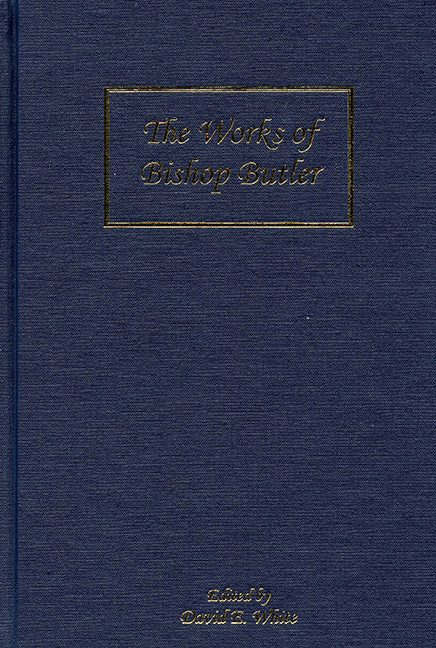Book contents
- Frontmatter
- Contents
- Acknowledgments
- Introduction
- A Note on the Text
- Part One Correspondence with Samuel Clarke
- Part Two Fifteen Sermons Preached at the Rolls Chapel
- Part Three The Analogy of Religion, Natural and Revealed, to the Constitution and Course of Nature
- Part Four Six Sermons Preached upon Public Occasions
- Part Five The Durham Charge
- Part Six Fragments
- Editorial Notes
- Bibliography
- Index
Part Four - Six Sermons Preached upon Public Occasions
Published online by Cambridge University Press: 11 May 2017
- Frontmatter
- Contents
- Acknowledgments
- Introduction
- A Note on the Text
- Part One Correspondence with Samuel Clarke
- Part Two Fifteen Sermons Preached at the Rolls Chapel
- Part Three The Analogy of Religion, Natural and Revealed, to the Constitution and Course of Nature
- Part Four Six Sermons Preached upon Public Occasions
- Part Five The Durham Charge
- Part Six Fragments
- Editorial Notes
- Bibliography
- Index
Summary
And this gospel of the kingdom shall be preached in all the world, for a witness unto all nations.
—MATT. xxiv. 14.
[1] The general doctrine of religion, that all things are under the direction of one righteous Governor, having been established by repeated revelations in the first ages of the world, was left with the bulk of mankind, to be honestly preserved pure and entire, or carelessly forgotten, or wilfully corrupted. And though reason, almost intuitively, bare witness to the truth of this moral system of nature, yet it soon appeared, that they did not like to retain God in their knowledge,1 as to any purposes of real piety. Natural religion became gradually more and more darkened with superstition, little understood, less regarded in practice; and the face of it scarce discernible at all, in the religious establishments of the most learned, polite nations. And how much soever could have been done towards the revival of it by the light of reason, yet this light could not have discovered, what so nearly concerned us, that important part in the scheme of this world, which regards a mediator; nor how far the settled constitution of its government admitted repentance to be accepted for remission of sins; after the obscure intimations of these things, from tradition, were corrupted or forgotten. One people indeed had clearer notices of them, together with the genuine scheme of natural religion, preserved in the primitive and subsequent revelations committed to their trust; and were designed to be a witness of God, and a providence to the nations around them: but this people also had corrupted themselves and their religion to the highest degree, that was consistent with keeping up the form of it.
[2] In this state of things, when infinite wisdom saw proper, the general doctrine of religion was authoritatively republished in its purity; and the particular dispensation of providence, which this world is under, manifested to all men, even, the dispensation of the grace of God towards us, as sinful, lost creatures, to be recovered by repentance through a mediator; who was to make reconciliation for iniquity, and to bring in everlasting righteousness, and at length establish that new state of things foretold by the prophet Daniel, under the character of a kingdom, which the God of heaven would set up, and which should never be destroyed.
- Type
- Chapter
- Information
- The Works of Bishop Butler , pp. 315 - 366Publisher: Boydell & BrewerPrint publication year: 2006

